ChangeDrive
DO YOU NEED TO MAKE A CHANGE IN YOUR LIFE?
If you have problems, can you change the situation?
We advise most people to come here first because you get the whole concept of YouDrive from here. We believe humans are creatures of habit we live by developing habits.
Our specialists have spent over 25 years working in organisations looking at behavioural change. YouDrive is all about you taking charge of your health.
But first we say look below at examples of what change is and how habits are formed, both good and bad. Whether it’s eating too much processed food, or not drinking enough water or managing your income and outgoings each month, it's important to create good habits.
We say that to get rid of a bad habit or out of a vicious circle and turn it into a positive habit and virtuous circle you first need to recognise the bad habit. Then you can start a new habit and over time with perseverance, you will change it. It can be painful and the road can be long but if your mind is determined to do it you will succeed.
Click on a heading below and see a summary, and if you're interested you can GO and read more about it
Here are some initial thoughts about change. GO!
Here are some initial thoughts about change. GO!
See some examples of change and decide whether you can make the changes you want in your life. GO!
See some key points about change. GO!
See how habits we don’t even know we have determine our behaviour. GO!
This is a great book about change with some good lessons. GO!
There are some tools you can use to get you started. GO!
If you’re a visitor to our site you can join and download information, assess your own health and create your own action plans, and even contribute to our site. GO!
See what you can do next.. GO!
We have some additional information and stuff on this subject. GO!
Some Initial Thoughts
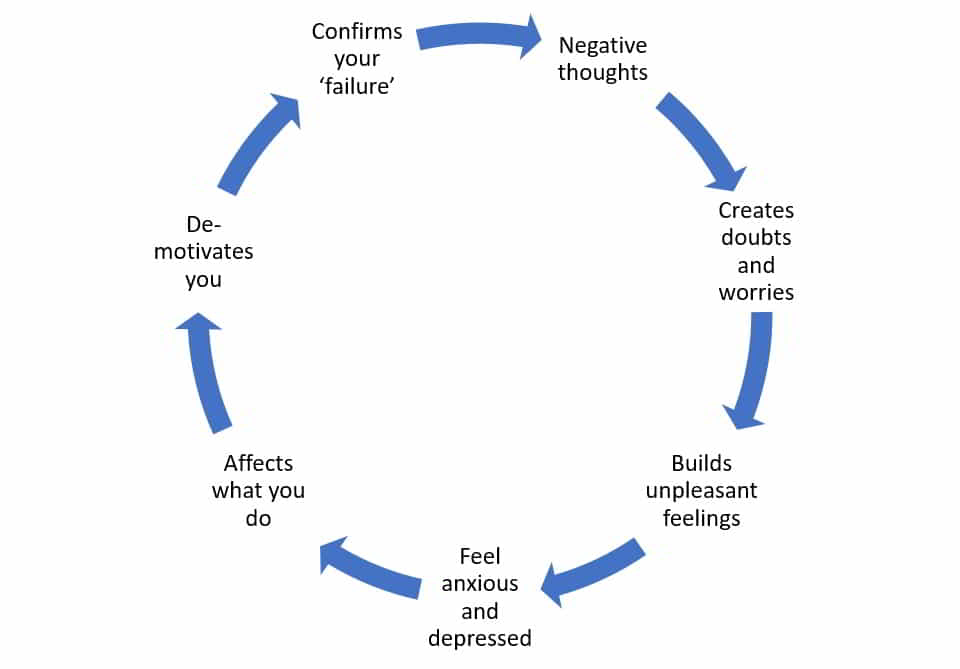
Vicious Circles
Vicious circles (sometimes called vicious cycles) are when there is a complex chain of events which reinforce themselves through a feedback loop – vicious circles have a bad or detrimental impact. Each cycle reinforces the previous one, and things get worse each time.
This general example shows how negative thoughts can start a process in your body and mind leading to bad outcomes.
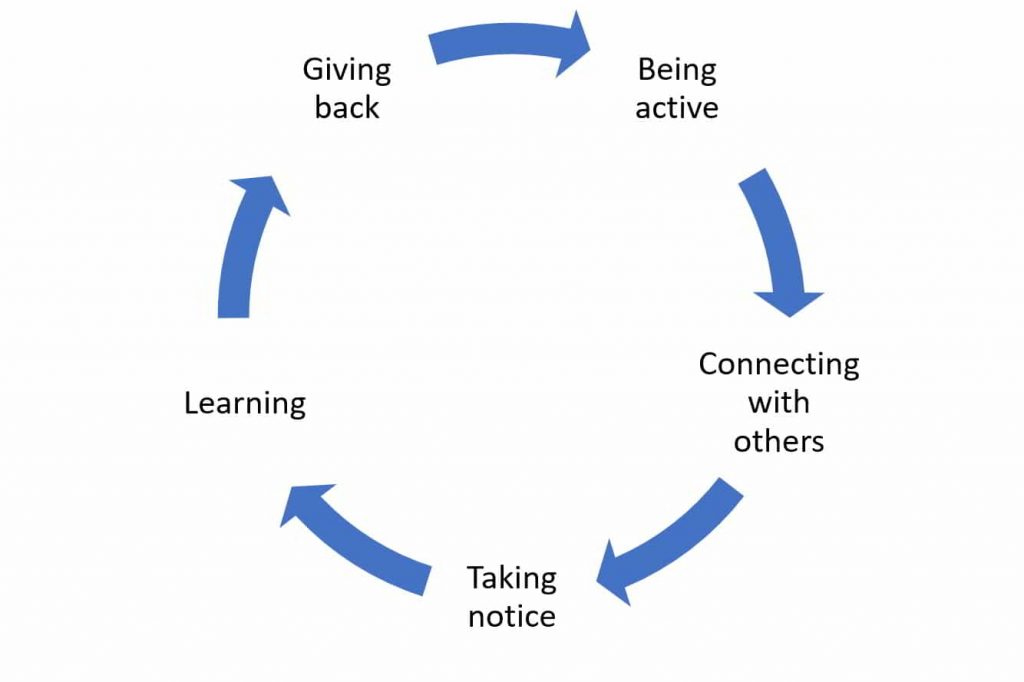
Virtuous Circles
Virtuous circles (sometimes called virtuous cycles) are when there is a complex chain of events which reinforce themselves through a feedback loop – virtuous circles have a good or positive impact. Each cycle reinforces the previous one, and things get better each time.
This is a general example, showing how being active and involved can lead to increased happiness and involvement.
You can see more examples of vicious and virtuous circles (including Amazon’s Jeff Bezos’s famous virtuous circle) by clicking the buttons on the right.
This is a HUGE subject which we’ve broken down into sections which you can visit
Facts About Change
is said to be the average time for a new habit to stick – really it varies!
every day are automatic – we’re not aware of them!
between 30-50% better chance of changing a habit with a coach
is the average lifespan of a Top 550 company in the US – 50 years ago it was 60 years!
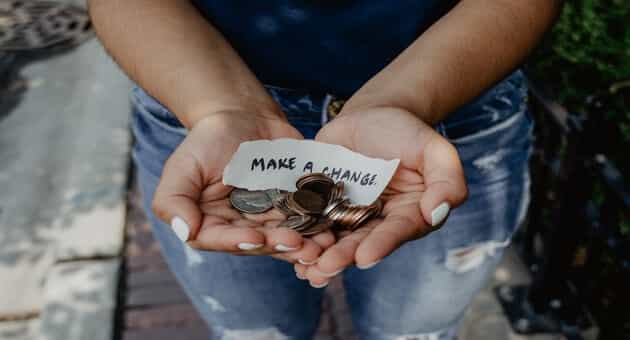
Can I change?
Some examples of change – good and bad
Many people still smoke even though the packet contains warnings and horrid pictures of what it can do to you. But yet people still smoke. It’s a habit and a strong habit with your body becoming nicotine dependent. People do stop when the doctor says you could die in ten years if you don’t.
A New Year’s resolution is a promise we make and 90% break it within minutes, hours, days, weeks.
Passing a driving test has more positive benefits and outcomes – there’s an instructor there to help.
Exercise – start to exercise slowly and gradually build up. Humans don’t seem to have a measure and go like hell exercising in the week, then can’t wait for 2 days, ache all over, feel sick and then stop exercising.
Control spending – read some of the statistics on FuelDrive and DrinkDrive and see for yourself how our impulsive buying keeps us poorer and stops us saving for the things we want. Or are you a type of person who thinks credit cards are to be used and it’s free money until you get the bill and the interest rate is 28%.
These examples relate to our habits. We spend half our waking days on automatic behaviour – doing things we’re not even aware of!
These are habits – we have good habits and bad habits.
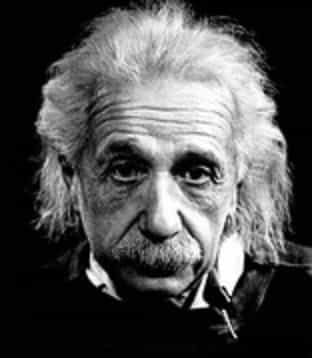
Here are a few key points about change that can help you
“If you always do what you always did, you will always get what you always got.” – attributed to Albert Einstein
“The chains of habit are too light to be felt until they are too heavy to be broken.” Warren Buffett
“The difference between who you are and who you want to be is what you do.” – Charles Duhigg
Up to 45% of our daily behaviours are automatic – we’re not even aware of what we’re doing – a Duke study in 2006
Habits allow your brain to save energy – it automates small chunks of behaviours making them need less brain activity to do when repeated
Habits are much more difficult to break – habits live in the core part of the brain used by our ancestors
Habits are spiritual – AA’s 12 step programme is based on belief – sharing feelings creates common belief
One key habit can trigger other changes – as long as it’s the right habit
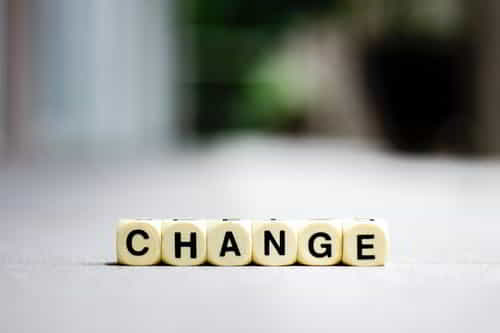
Changing habits
You know you have good ones and bad ones. You are perfectly aware of the fact that you need to exercise but then you think of any excuse not to.
But how can you change something, if you don’t know how it works? When you have no clue that your car needs oil to run, how can you know it’s oil you need to put in when it suddenly stops dead in the middle of the road?
The key is to learn about the habit. Why its there, how did it get there, can I get rid of it, how long will it take me. Once you know how habits work, changing them becomes much easier.
The facts below are in the brilliant book called ‘The Power of Habit’ by Charles Duhigg.
1. Half of the time you are awake is spent with automatic behaviours
This study from Duke University in 2006 found that up to 45% of all our daily behaviours are automatic.
2. Habits are a way for your brain to save energy.
Your brain is the most efficient processor on the planet. Your brain makes up only 2% of your total mass, but it consumes 25% of all the oxygen you inhale.
Automating behaviours in the form of habits is one of the best ways to save energy.
3. Habits are even tougher to break than you thought — way tougher
Sometimes I look at people who smoke and think: Does he have no clue how short life is? How can I take him even seriously, if he’s smoking?”
The reason habits are so tough to break lies in the structure of your brain. Based on evolution, the newer the parts of the brain are further away from the centre of the brain, . Your prefrontal cortex, where all complex thinking is done, is right behind your forehead.
Here’s where the basal ganglia is, the part of the brain where habits are formed. This little lump of tissue with the size of a golf ball has been around for a few thousand years.
It already made sure the caveman ancestor of your great-grandfather kept breathing, swallowing and running away from a saber tooth tiger. If that’s the kind of stuff that’s anchored in your basal ganglia, then you can imagine it would be fairly hard to get it out of there again.
It’s no wonder you can’t just quit smoking from one day to the next.
4. Habits are a spiritual thing — you better believe it
The reason why AA (Alcoholics Anonymous) is so efficient and has boasted about 2 million members each year, for the past 25 years, is surely not it’s 12-step program.
Alcohol addiction is a serious medical condition, people institutionalize themselves to get rid of it.
What fuels the success of AA is belief. Sometime during that first meeting, every newcomer looks around and starts thinking: “If it worked for that guy over there, why not for me?”
Getting together, sharing feelings and rallying together creates a common belief among the group that things can change. And to top it all off: belief works on top of belief.
Studies have shown that while no particular religion helped AA individuals reach sobriety faster, having any sort of faith at all made a huge difference over atheists and agnostics.
5. One keystone habit can change everything
Once we go further down the “habit hole”, we usually find dozens of things we want to change. Quit biting nails, stop drinking, don’t eat out so much and start running. This is neither efficient, nor even necessary.
It’s enough for you to change one habit, it just has to be the right one. Duhigg describes these as keystone habits, which cause a positive ripple effect and automatically infer changes in other areas.
You don’t have to start big, but you have to start with the right habit.
As a silly example, click to see some British holiday habits
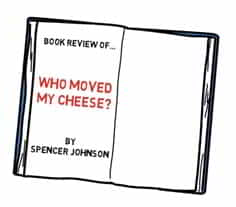
Who moved my cheese
This is a well-known video about change.
Cheese represents what you want in life – whether it’s a relationship, success or career. You can see a 4 minute summary video by clicking the image on the left.
You can buy the book at Amazon.

Personal change - Let’s get started!
We have used very successfully over many years corporate change methodology and adapted this into personal change. Many people in business will have heard of the following things;
SWOT Analysis
SWOT is Strengths, Weaknesses, Opportunities and Threats. This exercise is used for detailing your personal strengths, and weaknesses. You can ask others who know you to comment as well. Looking at your strengths is important but more important is looking at your weaknesses, as they may stop you or slow your desire to change. You can write down what opportunities may lay ahead that you can capitalise on as well as detail what threats stand in your way.
Forcefield
A forcefield anlysis is a great exercise that looks at Drivers and Restrainers. A driver is something that will help you make a change happen. You can list these and score them in strength. You then look at the restrainers. What is going to stop you from making a change or create a new habit? Again, we list them and score them [1 being low and 10 being high] as to how powerful they are or how big a stopper it is going to be.
Road Map
A road map is exactly what is says a map of the direction you want to travel in. Your plan of change should be like a google map with a start and an end. Steps along the way showing you how far you have come and how far you need to go. Signs telling you are on the right road and warning signs of danger ahead or message to say check yourself.
See the tabs below for more information.
Click on any of the tabs on the right to see more information
An example of each area would be;
Strengths; determined and never give up, family support
Weaknesses; can be easily distracted – sometimes
Opportunity; spare time available, have a friend who wants to do it as well.
Threat; work commitments and working away could get in way
Example Forcefield Analysis;
Drivers; determination to change 7, medical goal to improve 8
Restrainer; time 5, mental attitude 7, work issues 7
Mitigation; What steps/action can you take to minimise the restrainer or eradicate it all together.
Once you know they things that will stop you from achieving your goals, habits and change you can then develop a plan of change or a road map.
It’s impossible to build a totally generic roadmap for success, but here’s our effort!
- Define your goals – be specific (vague goals are no good) and make it measurable.
- Make your goals positive – while you might want to change something, say specifically what you want to change it to.
- Break down your goals into bite-sized chunks – this allows you to track your progress, create benchmarks, and celebrate the wins along the way.
- Brainstorm steps that will allow you to reach your goals – concrete steps, like who to talk to, what resources you will need.
- Consider roadblocks – what can stop you – list them, then plan to overcome them
- Monitor progress – set out a time frame, work out how to assess progress and set alerts and reminders.
- Rework and replan – goals aren’t fixed, they can and do change!
You can download this below under more Information, but it may be better to use the online version.
For visitors
Why don't you join us?
You can register to join us as a member, when you’ll be able to download our stuff and comment, or as a YouDriver when you’ll also be able to check your health and set up your own action plans to make some improvements. If you’ve already registered, sign in below. Or let us know what you think.
Who moved my cheese
Who moved my cheese
Who Moved my Cheese by Spencer Johnson
“The best laid plans of mice and men often go awry.” Robert Burns
Life doesn’t always turn out the way we think it will. When change happens, a lot of us have a natural tendency to resist that change. Why? Simply put, we are afraid of change. Change represents the unknown which challenges our sense of safety and security.
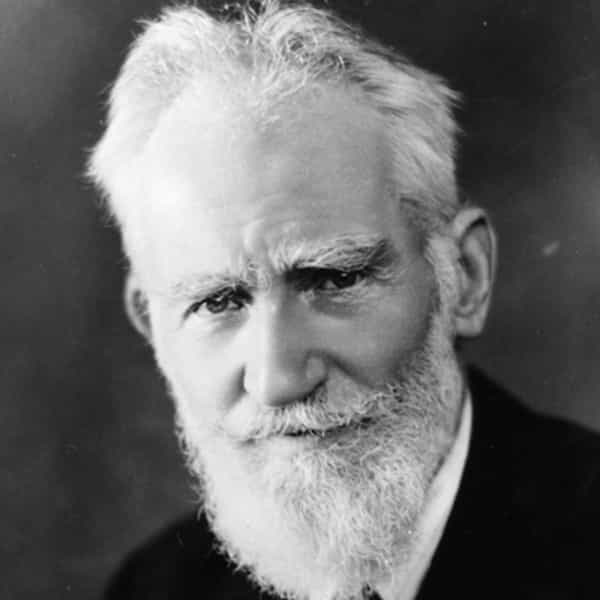
Next Steps
It doesn’t matter what stage you’re at – it’s important to be the best you can be. At the end of the day it’s about taking personal responsibility – You Drive!
It’s really your choice. You can find out more information about the subject, or see other institutions that can help by going to Support. There you will find organisations, training, coaching, self-help courses and other items to support your personal change. We have also started developing a panel of experts to provide info, advice, help and support.
Get Support
There are times when you need some help to meet your aims – a helping hand. That might be an organisation that can provide you with some help, some specialised information, a particular book or tool to help, or just getting some background reading material.
We have a lot of items which appear on our Drives and other pages, which you can go to by clicking on the picture or link. Some contain affiliate links and we may receive a tiny commission for purchases made through these links.
If you know of anything which could help you or our other visitors then please click the button on the right, which will take you to a Contacts page where you contact us.
Experts
We are compiling a list of experts who can provide advice, help or specialised services. You will be able to access these experts from anywhere on our site you see our ‘Experts’ symbol. Click the green E to see what our Experts list will look like, with a couple of imaginary ‘experts’ added!
More Information
Scroll down to see more information on this Drive.
If you register you can also download reports, white papers, quizzes and other collaterals. We will never ask you for any financial information, and we’ll only send you the information you want. You can register for our site either above or in the footer below. You can provide your own questions and experiences in order to help other members. We only moderate for spam and inflammatory language – see our moderation policy.
If you’ve found this interesting, then please share it on social media. Choose your network!
More information
Change: What Really Leads to Lasting Personal Transformation
You know you have good ones and bad ones. You are perfectly aware of the fact that you need to exercise but then you think of any excuse not to.
But how can you change something, if you don’t know how it works? When you have no clue that your car needs oil to run, how can you know it’s the oil you need to put in when it suddenly stops dead in the middle of the road?
Personal SWOT Analysis
Business Skills for Starting and Running a Business For Entrepreneurs and Business Owners
This book Personal SWOT Analysis will guide you on how to carry out a personal SWOT analysis in 5 easy steps
A Road Map To Find Your Passion
The Personal Change Process For Aligning To The Life: Know Your Passion
The Roadmap across Stages of Change in the book is the most innovative idea to define the various professional stages in an individual’s life.
Udemy have a free course on ending bad habits and developing healthy ones
Quora have a an article on breaking bad habits
The US News In Health (NIH) article from Jan 2012 on breaking bad habits
Have a look at an example of British holiday habits















